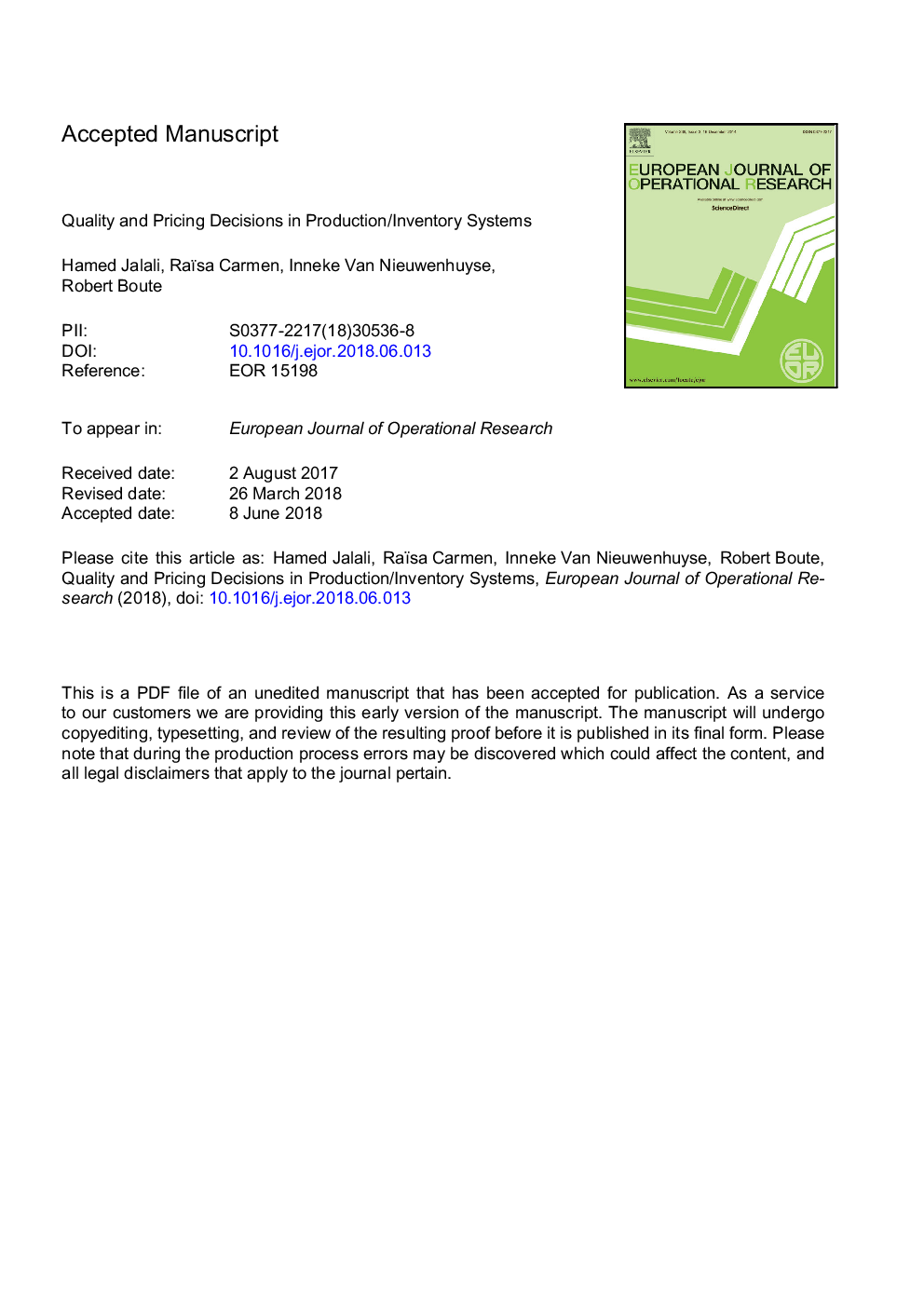| Article ID | Journal | Published Year | Pages | File Type |
|---|---|---|---|---|
| 8953649 | European Journal of Operational Research | 2019 | 35 Pages |
Abstract
In this article, we consider the impact of finite production capacity on the optimal quality and pricing decisions of a make-to-stock manufacturer. Products are differentiated along a quality index; depending on the price and quality levels of the products offered, customers decide to either buy a given product, or not to buy at all. We show that, assuming fixed exogenous lead times and normally distributed product demands, the optimal solution has a simple structure (this is referred to as the load-independent system). Using numerical experiments, we show that with limited production capacity (which implies load-dependent lead times) the manufacturer may have an incentive to limit the quality offered to customers, and to decrease market coverage, especially in settings where higher product quality leads to higher congestion in production. Our findings reveal that the simple solution assuming load-independent lead times is suboptimal, resulting in a profit loss; yet, this profit loss can be mitigated by constraining the system utilization when deciding on quality and price levels. Our results highlight the importance of the relationship between marketing decisions and load-dependent production lead times.
Keywords
Related Topics
Physical Sciences and Engineering
Computer Science
Computer Science (General)
Authors
Hamed Jalali, Raïsa Carmen, Inneke Van Nieuwenhuyse, Robert Boute,
